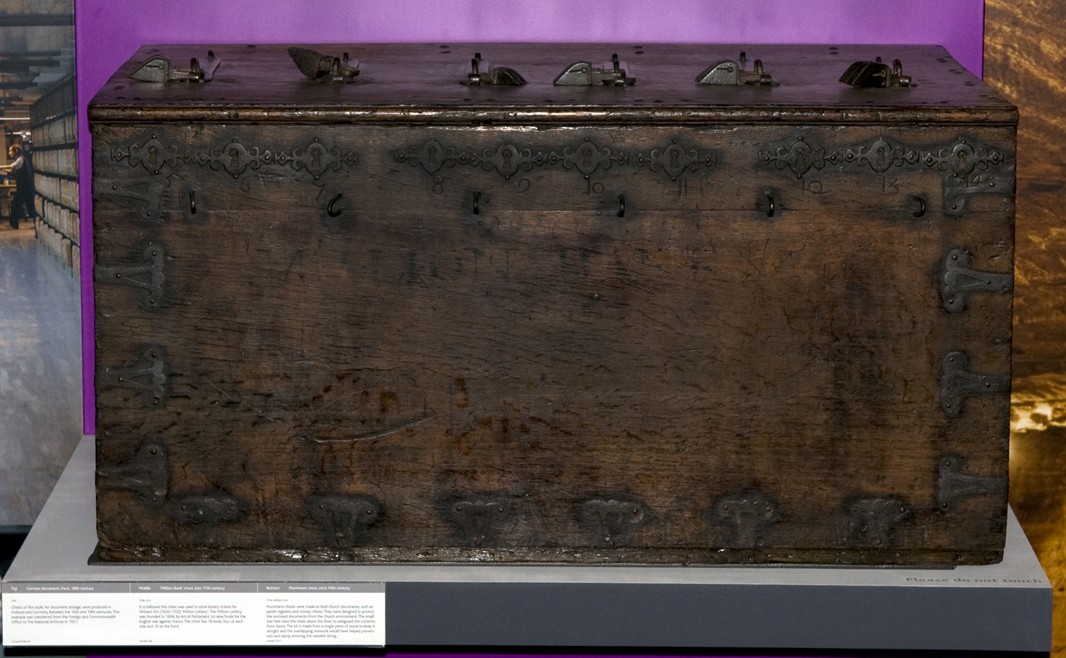Prize-Linked Saving
The Million Adventure: The Genesis of Prize-Linked Savings
The Million Adventure of 1694 transformed lottery tickets into government-backed bonds, pioneering prize-linked savings and laying the foundation for modern Premium Bonds and Prize Bonds.

Owen Monagan
CEO & Co-Founder
Feb 22, 2025
In the annals of financial history, the intertwining of savings and chance has given rise to innovative instruments designed to encourage public investment while satiating the human penchant for gambling. One of the earliest and most notable examples of this fusion is the Million Adventure, also known as the Million Lottery, introduced in 1694. This initiative not only served as a precursor to modern prize-linked savings schemes but also laid the groundwork for instruments like Premium Bonds and Prize Bonds that continue to thrive today.
The Birth of the Million Adventure

In the late 17th century, England found itself embroiled in the Nine Years' War (1688–1697) against France, a conflict that strained the nation's finances. To fund the war effort without imposing additional taxes, the government turned to innovative financial solutions. Enter Thomas Neale, the Master of the Royal Mint and a seasoned speculator, who proposed a novel idea: a lottery that functioned as a bond.
Launched in 1694, the Million Adventure aimed to raise £1 million—a staggering sum for its time. The mechanics were as follows:
Ticket Sales: 100,000 tickets were offered at £10 each.
Guaranteed Return: Every ticket guaranteed the holder an annual payment of £1 for 16 years, equating to a 6.15% annual return.
Prizes: Beyond the guaranteed return, 2,500 tickets were designated as "fortunate tickets," entitling holders to additional prizes ranging from £10 to £1,000 annually over the same period.
This structure meant that participants were not merely gambling; they were investing in a government bond with the added allure of potential windfall gains. The tickets themselves became tradable commodities, with their value fluctuating based on market demand and the allure of the associated prizes.
Security and Management
To ensure public trust in the scheme, the government implemented stringent security measures. Tickets were stored in specially designed chests equipped with 18 locks, symbolizing the importance and credibility of the venture. In 1695, the Million Bank was established to manage the assets and payments associated with the lottery, further institutionalizing the initiative.

Legacy and Evolution
The success of the Million Adventure did not go unnoticed. Between 1694 and 1768, the English government conducted 42 similar lotteries, each building upon the framework established by Neale's original design. These lotteries were instrumental in funding public projects and managing national debt.
The concept of combining savings with lottery-like incentives persisted and evolved over the centuries:
Premium Bonds (United Kingdom): Introduced in 1956 by then-Chancellor of the Exchequer Harold Macmillan, Premium Bonds offered citizens a government-backed savings instrument with the added excitement of tax-free prize draws. Instead of earning regular interest, bondholders have the chance to win cash prizes, with their initial investment remaining secure. This scheme has remained popular, with over 24 million people holding Premium Bonds as of 2025.
Prize Bonds (Ireland and Pakistan): Following the UK's example, Ireland introduced Prize Bonds in 1957, providing a similar mechanism for citizens to save money while being eligible for periodic prize draws. Pakistan adopted the concept as well, offering Prize Bonds as a means to encourage public savings and manage national debt.
Credibility and Impact
The enduring success of these instruments can be attributed to several factors:
Government Backing: Being state-sponsored, these bonds offer a high level of security, assuring investors of the safety of their principal amount.
Appeal to Human Psychology: By tapping into the innate desire for windfall gains without the risk of loss, these schemes effectively encourage savings among demographics that might otherwise be inclined towards traditional gambling.
Financial Inclusion: These instruments have historically attracted a broad spectrum of society, including those with lower incomes, by offering an accessible means of saving with the added thrill of potential rewards.
Conclusion
The Million Adventure of 1694 stands as a testament to financial ingenuity, merging the concepts of investment and chance in a manner that has resonated through the centuries. By transforming lottery tickets into bonds, the scheme not only addressed immediate fiscal challenges but also pioneered a savings model that continues to benefit individuals and governments alike. The legacy of the Million Adventure is evident in today's Premium Bonds and Prize Bonds, which remain popular tools for personal savings and public finance management.




